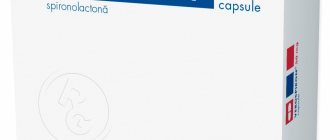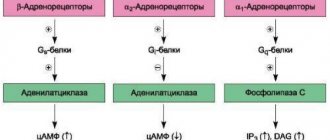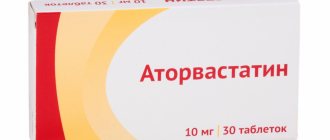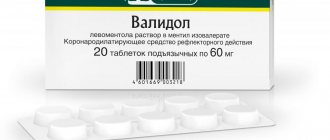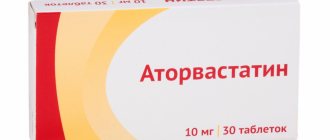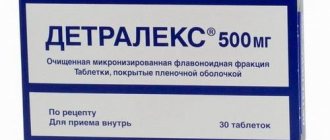≡ Home → Valerian → About valerian →
Valerian is a drug with fairly low toxicity and, therefore, the risk of side effects from its use is minimal. And yet, both valerian and drugs based on it, like almost any pharmaceuticals, have a number of undesirable effects on the human body.
Such drugs are more likely to be dietary supplements than drugs, which does not exclude the possibility of developing side effects after taking them
It is also important to remember that in certain conditions and in the presence of certain diseases, the use of valerian is strictly contraindicated.
The occurrence of certain side effects (from heartburn to loss of consciousness) will depend on a number of factors: the form of release of the drug, the dose taken, the initial state of the body of the person taking valerian. In addition, treating valerian as a natural and safe remedy is often accompanied by an overdose, and this is fraught with quite serious consequences for the patient.
So, why is valerian dangerous for humans, and what are the contraindications and side effects of this drug?
Side effects of valerian
Valerian has a sedative effect on the human central nervous system by enhancing inhibition processes in the cerebral cortex, and also causes relaxation of smooth muscle muscles, has a mild choleretic effect and enhances the secretion of the glands of the gastrointestinal tract.
Side effects occur partly as consequences of such activity. For example, among them the following are described and regularly recorded in patients:
- Drowsiness;
- Depressed state;
- Decreased concentration;
- Muscle weakness;
- Depression;
- Arrhythmia;
- Bradycardia;
- Reduced blood pressure;
- Nausea;
- Abdominal cramps;
- Intestinal dysfunction.
All of them appear rarely and are quite weak, in most cases they are not noticed at all against the background of the effects that the patient was counting on. However, it is necessary to take into account the possibility of their manifestation.
In case of hypersensitivity to valerian-based drugs, allergic reactions (rashes, itching, hyperemia, redness of the skin) may occur. In these cases, taking the drug must be stopped immediately.
In some cases, when taking valerian, the opposite effect on the central nervous system may occur, namely, mental agitation, irritability and insomnia. Such reactions account for no more than 5% of the total number of side effects and are individual for a particular patient. If they occur, valerian should be replaced with other means.
The adverse reactions listed above can occur when taking any form of valerian preparations.
Judging by the reviews, the most common manifestations of adverse reactions in people taking valerian are headache, drowsiness, dizziness and decreased concentration.
Headache when taking valerian may be associated with spasms of blood vessels.
Approximately 30% of people who took valerian experienced a negative reaction from the gastrointestinal tract: nausea, constipation and cramping abdominal pain.
The manifestation of an adverse reaction of valerian in the form of a stimulating effect on the central nervous system is less common when using the recommended doses of the drug. This side effect of valerian is more often observed among people suffering from hypertension.
When taking various forms of valerian, the frequency and specificity of adverse reactions is the same for both the body of men and the body of women. Valerian has a fairly beneficial effect on the female body, helping to alleviate premenstrual and climatic syndromes.
Effects of Valerian
Valerian essential oil contains more than 100 components. But clinical studies have proven their low biological activity. That is why, in the treatment of serious disorders, valerian tablets are prescribed only as an additional remedy in combination with other drugs.
But in cases of minor disorders, for example, the occurrence of insomnia due to nervous strain, the drug is considered effective if taken regularly. The alkaloids contained in the medicine have a beneficial effect on the nervous system. When taken correctly, valerian can stabilize the condition against a background of stress. Tablets help cope with the following problems:
- Nervousness.
- Hysteria.
- Insomnia.
In addition, when used correctly, essential oils and valeric acid help:
- Normalization of heart rhythm.
- Improving the functioning of the gastrointestinal tract.
- Reduce pain in various pathologies.
- Reducing blood pressure.
Side effects of different formulations of valerian
The most commonly used form of valerian release is alcohol tincture. Common side effects when taking the liquid form of valerian include headache and drowsiness due to inhibition of the functions of the central nervous system, but many people taking the tincture also experience side effects from the gastrointestinal tract - nausea, cramps and constipation.
Valerian tincture causes the greatest number of side effects due to the effect of alcohol on the body
Due to the presence of 70% ethanol in valerian tincture as an extractant, side effects from the liver (in the form of pain and tingling) and a more pronounced decrease in concentration and speed of psychomotor reactions may occur in comparison with the side effects of other forms of valerian release. In this regard, valerian tincture should not be taken if it is necessary to drive vehicles or work with potentially dangerous mechanisms.
This is interesting:
The founder of homeopathy, Samuel Hahnemann, believed that valerian tincture should not be taken orally, but should be sniffed before bed. Subsequent studies confirmed that when taken through the lungs, valerian vapor is absorbed 20 times faster and more efficiently than tincture when taken orally. However, the therapeutic effectiveness of this technique could not be verified.
Side effects when taking valerian tablets in recommended doses are much less common than when taking valerian tincture or essential oil. They manifest themselves mainly in the presence of sensitivity to the drug or when the recommended doses are significantly exceeded, in the form of drowsiness, headache, constipation.
It is also useful to read: Roots and rhizomes of valerian
Herbal tea based on a decoction of the roots and rhizomes of valerian is recommended for use in the same cases as any form of valerian. Adverse reactions when taking a decoction of valerian roots appear with long-term use to treat headaches, excitability, anxiety and insomnia.
Side effects of such drugs are often the reverse side of their therapeutic effects.
Side effects when using valerian essential oil are accompanied by nausea, severe headache, drowsiness, abnormal heart rhythm, overexcitation, or, conversely, severe depression, even depression.
Homeopathic remedies with valerian have a significantly lower likelihood of adverse reactions when taken in recommended doses and for a strictly defined time. This is due to the fact that all homeopathic medicines contain virtually no active ingredients and can neither have a therapeutic effect nor cause side effects.
Side effects
Understanding how valerian works, you need to know what side reactions it can provoke in the body. Despite the fact that the medicine is considered relatively safe for the body, if the recommended dosages are not followed, unpleasant side reactions may occur. Most often they manifest themselves as apathy and depression. Against this background, there arises:
- Drowsiness.
- Deterioration in performance.
- Headache.
- Muscle weakness.
Malfunctions in the gastrointestinal tract and a decrease in blood pressure may also occur. In rare cases, the pills have the opposite effect, increasing nervous excitability and causing insomnia. In severe cases, dizziness and severe vomiting may occur.
Dangers of overdose of valerian
It is generally accepted that valerian is a very safe remedy, exceeding the recommended dosage of which does not pose any danger to the patient. Because of this, cases of overdose of its drugs are very common, in which patients try to drink a lot of it in order to quickly get the desired effect.
As already mentioned, valerian enhances inhibition processes in the cerebral cortex and thereby has a depressant effect on the central nervous system. Consequently, when taking a large amount of valerian, much higher than recommended, the inhibition processes will be more pronounced, and this can lead to a slowdown in heart rate, bradycardia, which, in turn, can cause coma and cardiac arrest.
Also, overdoses of valerian cause dysfunction of the gastrointestinal tract, which will lead to heartburn, severe abdominal pain and cramps.
A dangerous dose of valerian for humans is a dose that exceeds the recommended dose by 20 - 40 times. It is difficult to say exactly what amount is considered a dangerous dose, since it depends on the initial state of the human body, the presence of chronic diseases, diseases of the cardiovascular or nervous systems, age, the drugs used and, in fact, the form of the valerian preparation.
First aid for an overdose of valerian, if the victim is conscious and no more than 2 hours have passed since the overdose, is:
- Gastric lavage by taking large amounts of water and inducing vomiting
- Taking sorbents (activated carbon, enterosgel, etc.)
- Using sodium sulfate to cleanse the intestines.
If the victim is unconscious or more than 2 hours have passed since the poisoning, it is necessary to call an ambulance.
From a sick head to a healthy one
Pain from which your head simply splits in half... Do you know this picture when it seems that you are ready to drink a whole mountain of painkillers just to let it go? Fortunately, pharmacies offer a whole arsenal of medications. But don’t rush to grab the pills. Try to first understand why you have a headache? The head of the Regional Center for Diagnostics and Treatment of Headaches OKDC, Candidate of Medical Sciences Elena Shestel will help you figure this out.
All “happy” heads hurt the same...
In healthy people, headaches can be caused by stress or simple overwork. The fact is that negative conditions such as anger, anxiety, fear lead to prolonged tension in the muscles of the face, shoulders and neck. Nerve endings are “pinched” in tense muscles, and the nerve impulses coming from them are transmitted to receptors located in the soft tissues of the head - a person feels pain. Staying in a sitting, bent position for a long time can also cause pain, since the back and neck “go numb” in this position, and this leads to vasoconstriction and a reduction in blood flow, which, in turn, causes a lack of oxygen in the tissues and the accumulation of metabolic products in them . At the same time, dilation of blood vessels (for example, due to excessive eye strain) leads to irritation of nerve endings, which also causes headaches.
According to WHO, 99% of people on earth experience a headache attack at least once in their lives. Most often, it goes away on its own: just drink hot tea, relax, take a bath, adding a few drops of essential oils to the water: lavender, lemon, peppermint... Fragrant foam and sea salt are welcome! Or stand in a hot shower to help relieve cramping headaches caused by muscle spasms in the back of the neck and head. You can take mustard foot baths - they reduce blood pressure in the brain. In addition, cold compresses help well, as they constrict the blood vessels in the painful area and reduce painful pulsation. A bag of ice cubes wrapped in a towel should be applied to the forehead, temples or back of the head for approximately 10–15 minutes. Listen to calm, pleasant music or watch an interesting comedy program. Laughter not only tones blood vessels, but also promotes the production of pleasure hormones, endorphins, which have an analgesic effect. You can massage your head with light stroking movements from the forehead to the back of the head.
But, if the pain does not go away for a long time, if it often recurs, then you need to deal with it in the doctor’s office.
The fact is that a headache can be a manifestation of such threatening diseases as a brain tumor, heart attack or stroke, cerebral hemorrhage, meningitis, encephalitis, trauma... In this case we are talking about secondary headaches - in the medical classification their number is close to three . But, fortunately, this situation occurs only in 2% of cases. Most often, pain is not associated with structural disorders of the brain and is benign in nature with a favorable prognosis. They are called primary. The most common among them are migraine, tension headache, and cluster headache.
Illness of responsible people
Almost a fifth of the world's population suffers from migraines. It has been noted that the disease, as a rule, occurs in people who are ambitious, responsible and conscientious, who tend to overload themselves with work. Migraines are often hereditary. It is noteworthy that the weaker sex is most susceptible to this serious but not fatal illness. The symptom of the disease is well known: with a migraine, only half of the head hurts. Severe throbbing pain during an attack can affect the orbital, parietal, temporal or occipital region of the head. Sometimes before an attack a person experiences a special visual aura: flickering spots, unclear outlines of objects, darkening in the eyes. Multi-day attacks that occur several times a month turn life into torture. Conventional analgesics, as a rule, are not effective; special anti-migraine vasoconstrictor drugs are required. They should be taken at the beginning of an attack. But only a doctor should prescribe a medicine, based on the individual characteristics of the patient and concomitant diseases.
Courageous on the outside, gentle on the inside
However, you should not think that headaches are a purely female privilege. For example, cluster headaches, the most painful of all, are unique to men. It manifests itself in characteristic painful periods with a duration of 15 - 180 minutes, repeated several times a day for up to 3 months. This is an extremely intense paroxysmal pain localized in the area of one eye, accompanied by lacrimation, nasal congestion and a pronounced feeling of anxiety and restlessness. The pain disappears suddenly and sometimes does not bother the person at all for several years. There is a widespread belief among doctors that cluster pain affects representatives of the “stronger” sex with an exceptionally masculine, but deceptive appearance. In fact, they are soft, fearful, indecisive.
Tired - take a rest
Everyone knows the headaches associated with overwork. Its cause is not only stress, but also a busy work schedule, personal problems, and weather changes. This is the most common type of headache, the so-called tension headache. It manifests itself in the form of episodes lasting from several minutes to several days, usually bilateral, squeezing or pressing, of moderate intensity. But often, in the absence of proper treatment, such a headache becomes chronic, is permanent and is poorly relieved by taking classical analgesics.
Don't rush to take pills
What to do if you have a headache? First and most importantly, do not rush to take medications. No matter how good, modern and expensive the drug is, any of them has side effects. This is especially true for homeopathic remedies and dietary supplements. In addition, self-administration of medications gives only short-term results, but does not affect the mechanisms of pain. As a result, the headache returns again and again, the amount of painkillers increases, which leads not only to the development of side effects of the drug itself, but also to the development of dependence on analgesics, which in itself can also provoke headaches. Only a doctor can select appropriate therapy with specific drugs, and in such cases medications must be taken under strict medical supervision.
Important
Very often, headaches are caused by certain provoking factors - triggers. They are different for everyone and can change in one person from attack to attack. Here are the most common ones:
- Nutrition. Basically, this is an irregular diet. In addition, some people are sensitive to certain types of foods (cheese, chocolate, coffee, citrus fruits). Alcohol, especially red wine, beer, champagne, and cocktails are common headache triggers.
- Dream. Lack of sleep or prolonged sleep are common causes of headaches. Try to get up on weekends no later than 2 hours from your usual awakening on weekdays.
- Physical exercise. Heavy physical work or intense exercise in the gym can trigger headaches, but at the same time, regular exercise and maintaining physical fitness are a good defense against this scourge. Dosed aerobic exercise and swimming are desirable.
- Environment: bright or flickering light, strong (sometimes even pleasant) odors, stuffy rooms, sudden changes in weather, long trips (especially with time zone changes).
- Psychological factors: negative emotions or, surprisingly, relaxation after a stressful situation.
- Hormonal factors in women: a certain phase of the menstrual cycle, pregnancy, menopause, taking or interrupting hormonal contraception.
If you have changed your lifestyle and you continue to have headaches and are forced to take more than 2 tablets of analgesics per month, you need to consult a doctor.
What is strictly forbidden:
- Drinking alcohol. It dilates the blood vessels and at first it actually becomes easier, but then the condition worsens.
- To drink coffee. If you have high blood pressure or are prone to atherosclerosis, even one cup of coffee can be harmful. However, for hypertensive patients, on the contrary, a couple of sips of coffee will be a salvation. For those who constantly take large doses of this drink, an extra dose will not help, but will only make it worse.
- Smoking. Nicotine causes a sharp spasm of blood vessels, which will make the pain even more intense.
Main:
If you have changed your lifestyle, but you still have headaches and you are forced to take analgesics more than 2 tablets per month, you need to urgently consult a neurologist. Residents of the Rostov region have a unique opportunity to get to the only Regional Center for Diagnostics and Treatment of Headaches in the south of Russia based on the OKDC. In order to undergo an in-depth examination that meets European standards and receive specialist advice, it is enough to have a compulsory medical insurance policy and a referral from a district hospital or clinic.
The staff of our headache center are members of the Russian Society for the Study of Headache (ROIGB).
share information
0
Social buttons for Joomla
Contraindications for valerian and drugs based on it
An absolute contraindication to the use of valerian is the presence of an allergy to it. If it has not been taken before and it is not known how it can affect the body, the first doses should be carried out with a small amount of the product.
Typical signs of allergy upon contact with the product.
Further, valerian is contraindicated for people who are depressed and depressed, as well as people taking other sedatives with similar pharmacological effects.
It is also useful to read: Instructions for using valerian preparations
Enterocolitis is also a contraindication, which can be aggravated by the influence of both valerian and the alcohol from its tincture.
This is interesting
Since valerian is included in Corvalol, which is banned in many countries, it is sometimes believed that valerian is banned in Europe, but this is not the case. Valerian is a medicinal product approved in all countries of the world.
Due to the limited data available on the use of valerian in pregnant women and nursing mothers, valerian is contraindicated for this population group, except as directed by the attending physician.
Children under 12 years of age are also contraindicated for valerian, however, in certain cases, the pediatrician may prescribe this drug.
Valerian tincture is not recommended for use by people with liver problems due to the alcohol it contains. Any form of release of valerian is contraindicated for persons before driving vehicles or working with dangerous mechanisms that require increased concentration. In general, any activity that requires increased concentration and performance is incompatible with taking valerian in any form of release.
If you plan to drive home, you should drink valerian upon arrival home
Due to the same decrease in concentration, inhaling valerian essential oil is not recommended for people aged 10 to 65 years, as well as for pregnant and lactating women.
Valerian is quite dangerous for people who combine it with alcohol. This combination can have consequences in the form of loss of consciousness and even coma, leading to cardiac arrest, which is explained by the combination of the relaxing and inhibitory effect of alcohol on the brain with the inhibitory and inhibitory effect of valerian on the nervous system as a whole. Taking valerian tincture in alcohol together with alcohol can lead to chronic liver damage.
Valerian: indications and contraindications
Valerian tablets, the instructions for use indicate this, are indicated for increased nervous excitability. The cumulative effect helps stabilize blood pressure and heart rate. This contributes to the onset of “inner peace” and the return of the ability to realistically assess the situation in the world around us.
Also, valerian tablets, the instructions emphasize this, help cope with insomnia. But at the same time, the drug is not a potent sleeping pill, so you should not count on getting a quick effect. But with the right attitude, after just a few days you can fall asleep faster. But it will be possible to completely stabilize sleep no earlier than after 2-4 weeks.
As part of complex therapy, valerian tablets, the instructions for use focus on this, can be used to treat cardiovascular pathologies. In combination with other targeted drugs, valerian will help to quickly cope with migraines and symptoms of vegetative-vascular dystonia.
Contraindication is hypersensitivity to the main active ingredient and other components that are used in the production of tablets. This means that you need to carefully study the composition of the medicine before use. Valerian tablets are also strictly prohibited in the 1st trimester of pregnancy. In the 2nd and 3rd trimester, the decision to take medication should be made by the doctor.
It is advisable to stop taking sedatives before the age of 18. Valerian, the instructions indicate this, is contraindicated for children under 4 years of age. Due to the characteristics of the child’s body, the drug can have a strong depressant effect on the nervous system, which is unacceptable for full development. In addition, since valerian tablets, the instructions confirm this, are a multicomponent medicine, the substances in its composition can provoke allergic reactions.
Other contraindications:
- Bradycardia.
- Arterial hypotension
- Pathologies accompanied by inhibition of central nervous system activity.
A combination of valerian with other sedative herbal preparations.
In the treatment of mild disorders of the cardiovascular system, digestive tract and disorders of the central nervous system, valerian is often prescribed in combination with other medications.
For example, Zelenin drops containing valerian with belladonna leaves, tincture of lily of the valley and menthol are quite popular; a combination of tinctures of valerian, motherwort, peony and hawthorn is also in demand. Such herbal medicinal combinations have a mutually reinforcing effect of the components included in their composition, but the side effects of such combinations are usually more pronounced. They include a stronger decrease in concentration, a rapid and severe decrease in blood pressure (contraindicated for people suffering from hypotension), and, of course, a higher risk of allergic reactions.
In such complex preparations, it is necessary to take into account the side effects of all active substances included in them.
Valerian is also included in many well-known herbal preparations and tinctures. These include Corvalol, Persen, Novo-Passit, Validol, and other sedatives. When taking them, it is important to know that valerian has its own side effects, which may be enhanced by the side effects of other components included in such medications.
